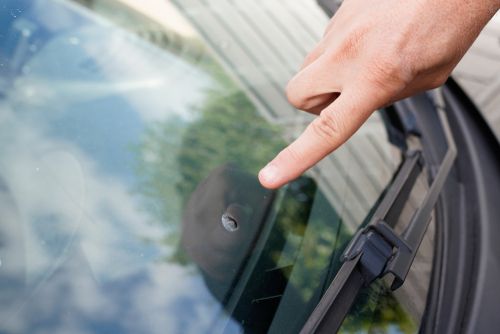When it comes to the safety and functionality of your vehicle, auto glass plays a crucial role. From protecting you against the elements to maintaining structural integrity, your car's windows are essential. However, they are not immune to damage, and the colder months can exacerbate the issues. In this blog, we'll explore the different types of auto window damage, how they worsen in cold weather, and the implications for your safety if timely auto glass repairs and replacements are neglected.
Understanding Auto Window Damage
Auto glass damage comes in various forms, but the most common types are chips and cracks. These issues can be caused by a variety of factors, such as flying debris, extreme temperature changes, or even a minor collision. Understanding the types of damage is crucial for determining the best course of action for repair or replacement.
- Chips: These are small, localized areas of damage on the surface of the glass. They often result from impacts with small rocks, gravel, or road debris. While they may seem minor, chips can worsen over time if left unattended.
- Cracks: Cracks are more significant and can be caused by more severe impacts or temperature fluctuations. Cracks can range from small hairline fractures to larger, more extensive breaks, compromising the structural integrity of the glass.
Worsening Damage in Colder Months
During the colder months, auto window damage can worsen for several reasons:
Temperature Fluctuations: Glass expands and contracts with temperature changes. In cold weather, the glass contracts, which can exert additional stress on existing chips and cracks. This can lead to them spreading and growing in size.
Moisture: Winter often brings rain, snow, and frost. Moisture can seep into the existing damage, and when it freezes, it expands, further exacerbating the cracks or chips.
External Stress: Harsh weather conditions, including strong winds, hail, and heavy snowfall, can place additional stress on your vehicle's windows. These forces can accelerate the progression of damage.
Safety Implications for Drivers and Others on the Road
Neglecting auto glass damage can have severe safety implications for both the driver and other road users. Here's why timely auto glass repairs and replacements are essential:
- Visibility: Cracked or chipped windows can obstruct your field of vision, reducing your ability to see the road clearly. This impairs your reaction time and decision-making, increasing the risk of accidents.
- Structural Integrity: Auto glass is an integral part of your vehicle's structural strength. Damaged glass is weaker and may not provide the necessary support in the event of a collision, putting the driver and passengers at a higher risk of injury.
- Airbag Functionality: Modern vehicles rely on airbags for passenger safety. A compromised windshield may not be able to withstand the force of an airbag deployment, causing it to shatter and reducing the effectiveness of the safety system.
- Ejection Risk: In the event of a severe collision, damaged auto glass is more likely to shatter, potentially ejecting the driver or passengers from the vehicle. This is a significant safety concern that underscores the importance of well-maintained auto glass.
- Legal Implications: In many regions, driving with damaged auto glass is against the law, and you could face fines and penalties if you neglect necessary repairs.
The Role of Professional Auto Body Repair Shops
When you notice any form of auto glass damage, it's crucial to seek professional help. Professional auto body repair shops have the expertise, equipment, and experience to assess the damage accurately and determine whether repair or replacement is necessary. They use high-quality materials and follow industry standards to ensure your safety and the longevity of the repair.
In colder months, professional auto body repair shops are well-equipped to address the specific challenges posed by low temperatures and moisture. They can perform the necessary repairs or replacements efficiently, taking into account the potential for further damage due to weather conditions.
Conclusion
Auto glass damage can worsen during colder months due to temperature fluctuations, moisture, and external stress factors. Neglecting these issues can compromise your safety and the safety of others on the road. Therefore, it's essential to address any damage promptly and rely on professional auto body repair shops to perform the necessary repairs or replacements to ensure your vehicle remains safe and roadworthy, regardless of the season. Don't compromise on safety – get your auto glass issues resolved as soon as possible.

